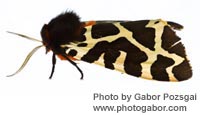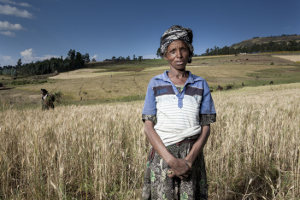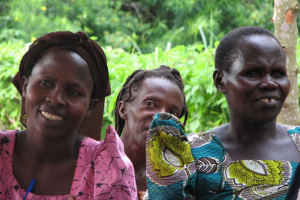Where we are working
Ethiopia is the primary location and Uganda the initial satellite as these two enable comparison, contrast and assessment of the transferability of data, research approaches and outcomes with specific reference to:
- Contrasting a dryland mineral soil region (Ethiopia) with an organic peatland soil region (Uganda).
- Comparing carbon market based provision of ecosystem services (Uganda) with alternative incentives (Ethiopia, Uganda).
- Assessing implications for Nationally Appropriate Mitigation Actions and National Adaptation Programmes of Action in Ethiopia and Uganda.
In Ethiopia, degradation of soils is a national adaptation priority with Government action initiated in 2012 (including EthioSIS). Deterioration of the natural resource base is a serious threat to ecosystem functions, economic production and livelihoods in Ethiopia. Problems are attributed to unsustainable soil use and management with soil erosion estimated to cost ~ 766 million ETB in lost agricultural productivity alone; losses of non-market benefits have been identified but not estimated.
Our research will focus on the Ethiopian Southern Rift Valley region which is under intense agricultural and population pressure; acute land/soil degradation; falling agricultural productivity; pollution of lakes with consequent detrimental effects on the biodiversity and aquatic livelihoods.
Uganda has contrasting issues of soils degradation, a major constraint to poverty alleviation where ~40% GDP is from agriculture and ~90% of the population is dependant on farming with increasing pressures on organic soils especially in wetlands. During the 1990s, 7.3 % of Ugandan peatlands were lost due to agriculture, which has since increased significantly. A key challenge is to overcome the lack of data on peat soils in wetlands (e.g. accurate measurements of peat depth and other biophysical data to quantify soil C fluxes) and understand the effects of carbon losses from peat soils on ES. ALTER will combine spatial analyses of biophysical and socio-economic conditions to carbon storage in peat soils, mapping use-values for local communities and evaluate the potential of soil carbon (via market-based approaches) to PA. Uganda has pioneering PES schemes (Plan Vivo agro forestry, NICS/GEF REDD payments, market mechanisms) which will be explored and evaluated for PA and avoid elite capture through soil carbon management.



